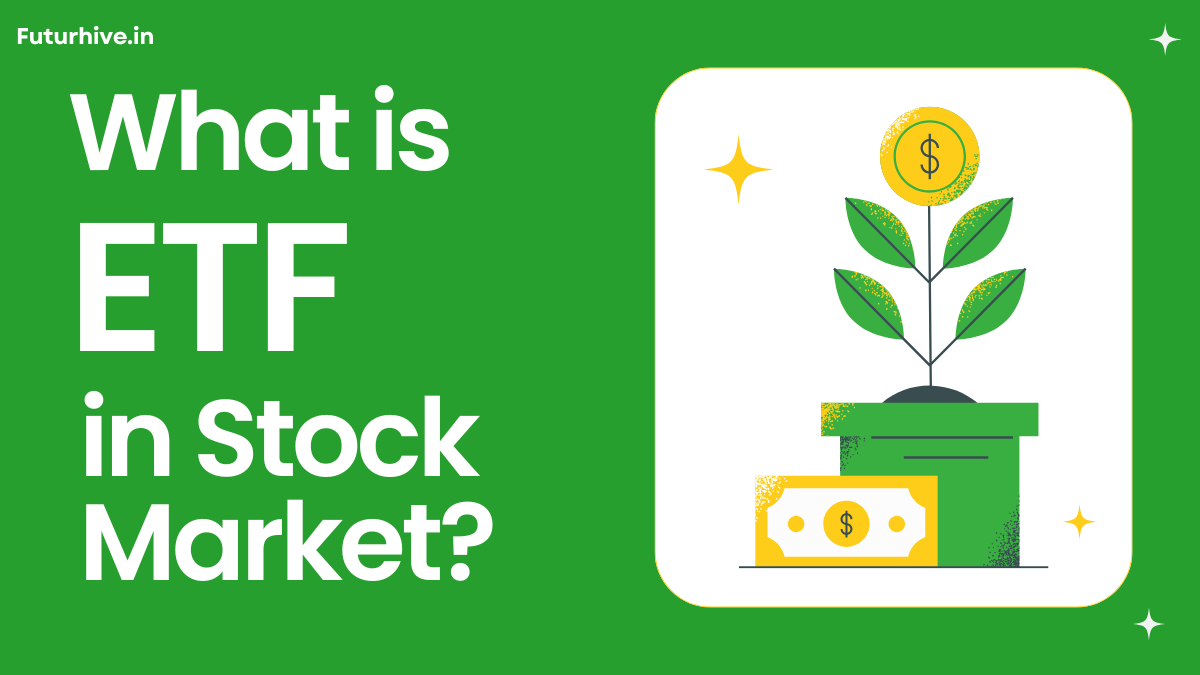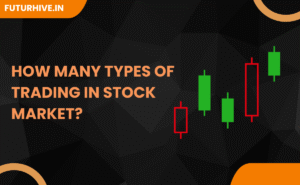If you’ve ever looked at the stock market and thought, “I want to invest… but not lose sleep over picking the perfect stock,” welcome to the world of ETFs. It’s like ordering a thali instead of à la carte — you get a bit of everything, with less stress.
Let’s break it down.
What is ETF in Stock Market?
ETF stands for Exchange Traded Fund. It’s a type of investment fund that’s traded on stock exchanges — just like individual stocks.
Imagine a basket filled with different stocks, bonds, or commodities. That basket is an ETF. When you buy one ETF unit, you’re buying a slice of that whole basket.
In India, ETFs are managed by fund houses and regulated by SEBI. They track an index (like Nifty 50), a commodity (like gold), or a specific sector (like public sector enterprises).
What is ETF Fund?
An ETF fund is the broader category. It refers to any mutual fund structured as an ETF — meaning, it’s listed on the stock exchange and you can buy/sell it like a share.
Types of ETF Funds in India:
| Type of ETF | Tracks |
|---|---|
| Index ETF | Nifty 50, Sensex, etc. |
| Gold ETF | Price of physical gold |
| Sectoral ETF | Specific sectors like banking or IT |
| Bond ETF | Government or corporate bonds |
| International ETF | Global indices like Nasdaq-100 |
What is Gold ETF?
Gold ETFs are exactly what they sound like — ETFs that track the price of gold.
You don’t need to worry about locker charges, purity, or your aunt who’s a bit too curious about your jewellery collection. Gold ETFs offer:
- Exposure to gold prices
- High liquidity (buy/sell like a share)
- No making charges (unlike jewellery)
- No risk of theft
📈 Example: Nippon India Gold ETF or HDFC Gold ETF
What is CPSE ETF?
The CPSE ETF (Central Public Sector Enterprises ETF) is a unique product launched by the Indian government.
It gives you exposure to a bunch of PSU stocks like ONGC, NTPC, Coal India, etc. in one go. Think of it as the “Sarkari Stock Thali.”
- Managed by Nippon India AMC
- Tracks the Nifty CPSE Index
- Often used for disinvestment purposes by the government
It’s suitable if you want to bet on public sector performance — but remember, it comes with sector-specific risks.
ETF vs Mutual Fund – Which is Better?
Let’s settle this debate like adults (with a table):
| Feature | ETF | Mutual Fund |
|---|---|---|
| Traded on Exchange | Yes | No |
| Real-time Pricing | Yes | End of day NAV |
| Expense Ratio | Usually Lower | Usually Higher |
| Flexibility | High (Buy/sell any time) | Limited to NAV timings |
| SIP Mode Available | Not typically | Yes |
| Best for | DIY Investors | Hands-off Investors |
TL;DR:
- ETFs are better for cost-conscious, self-driven investors.
- Mutual Funds are better if you want automation and SIP-style investing.
How to Invest in ETF?
Investing in ETFs in India is simple — no MBA required.
Step-by-Step:
- Open a Demat and Trading Account
Use platforms like Zerodha, Groww, Upstox, ICICI Direct, etc. - Log in and Search for ETF
Use the stock ticker. For example: NIFTYBEES for a Nifty 50 ETF. - Place a Buy Order
Choose quantity, place a market or limit order. - Hold in Demat Account
Just like shares, ETFs will sit safely in your demat.
💡 Tip: Unlike mutual funds, there’s no minimum investment. You can start with just 1 unit.
Pros and Cons of ETFs
| Pros | Cons |
|---|---|
| Low expense ratio | Requires demat/trading account |
| High liquidity | No SIP (mostly) |
| Transparent (live pricing) | DIY research needed |
| Tax-efficient | Brokerage charges apply |
Final Thoughts
ETFs are like the smart cousin of mutual funds — low-cost, transparent, and flexible. Whether you want to track gold, bet on PSU stocks, or simply ride the Nifty 50 wave, there’s an ETF for that.
But like all investments, don’t jump in blindfolded. Know your goals, understand your risk appetite, and if needed, talk to a financial advisor — not your friend who says “crypto is the future” every three seconds.



